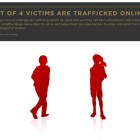
OP-ED: Injustice in Connecticut
|
She sits in solitary confinement 22 or 23 hours a day. She is 16, but has been involved with the system in one way or another since she was five.
Juvenile Justice Information Exchange (https://jjie.org/page/278/)

In late September, Torri was driving down the highway with her 11-year-old son Junior in the back seat when her phone started ringing.
It was the Hamilton County Sheriff’s deputy who worked at Junior’s middle school in Chattanooga, Tennessee. Deputy Arthur Richardson asked Torri where she was. She told him she was on the way to a family birthday dinner at LongHorn Steakhouse.
“He said, ‘Is Junior with you?’” Torri recalled.
Earlier that day, Junior had been accused by other students of making a threat against the school. When Torri had come to pick him up, she’d spoken with Richardson and with administrators, who’d told her he was allowed to return to class the next day. The principal had said she would carry out an investigation then. ProPublica and WPLN are using a nickname for Junior and not including Torri’s last name at the family’s request, to prevent him from being identifiable.
When Richardson called her in the car, Torri immediately felt uneasy. He didn’t say much before hanging up, and she thought about turning around to go home. But she kept driving. When they walked into the restaurant, Torri watched as Junior happily greeted his family.
Soon her phone rang again. It was the deputy. He said he was outside in the strip mall’s parking lot and needed to talk to Junior. Torri called Junior’s stepdad, Kevin Boyer, for extra support, putting him on speaker as she went outside to talk to Richardson. She left Junior with the family, wanting to protect her son for as long as she could ...

She sits in solitary confinement 22 or 23 hours a day. She is 16, but has been involved with the system in one way or another since she was five.

Under a bill pending in Congress states would be forbidden to lock up juveniles for status offenses.

California still allows kids to be locked up for not going to school. Here's why this needs to change.

Six years after a grant-awarding controversy shook up the federal Office of Juvenile Justice and Delinquency Prevention the legal mechanism that allowed such practices to take place has not changed.

Males remain a largely invisible population within the dialogue on sex trafficking.

Powerful Q&A with Dr. Bruce Perry, a child psychiatrist and senior fellow at the ChildTrauma Academy in Houston whose neuroscientific research has focused largely on the effects of trauma on brain development.

In one diverse community in Portland, Maine, the Kennedy Park basketball courts are a gathering space for folks of all ages, races and backgrounds in which to cooperate both in sport and community.

Alex Hribal allegedly stabbed 22 people, including a security guard, at his high school in a Pittsburgh suburb. The story, admittedly sensational, has gotten a lot of press the last few days. A more interesting story, though one less likely to get as much attention, is the ongoing drop in juvenile crime, especially violent crime.